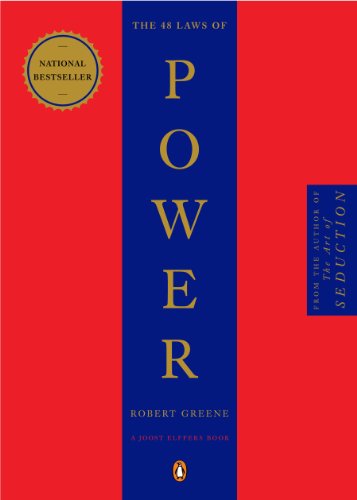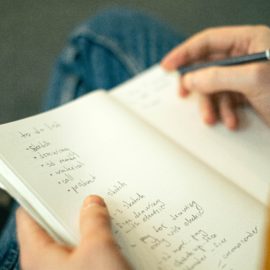

This article is an excerpt from the Shortform summary of "The 48 Laws of Power" by Robert Greene. Shortform has the world's best summaries of books you should be reading.
Like this article? Sign up for a free trial here .
Is it possible to learn how to develop courage? And will more courage lead to more power?
Learn how to develop courage to gain power through strategic acts of boldness. We’ll cover the principles of acting boldly and learn from the examples of historical figures, some of whom succeeded at developing courage, and some of whom failed in their acts of boldness.
How to Develop Courage
Courage leads to power. You can learn how to develop courage by practicing acting boldly. If you hesitate before doing something, your doubts will undermine your efforts. When you act, do so courageously — and if you make mistakes, correct them with even greater courage. Everyone admires the bold.
How to Develop Courage: Principles
People have a natural tendency to hesitate before acting. To be powerful, you need to overcome this tendency, by practicing audacity. This is how to develop courage.
Here’s how these two tendencies — boldness and hesitation — work. To learn how to develop courage, remember:
- Lie boldly: By acting boldly you can hide your weaknesses. Con artists know that the bigger the lie, the more likely it is to be believed. Audacity distracts attention from a phony story’s inconsistencies.
- Hesitate and you’ll lose: People sense weakness in others. If you show hesitancy, for instance through backing down or a willingness to compromise, others will pounce and take advantage. If people perceive that you’re a pushover, that’s what they’ll do.
- A bold move intimidates: When you act boldly, you appear powerful and intimidating. If your bold move is also sudden it intimidates even more. You’ll put people on the defensive against future strikes.
- Hesitation creates obstacles: If you pursue a goal half-heartedly, you create problems for yourself, the way a hunted rabbit behaves erratically and blunders into the path of the hunter.
- Boldness erases doubt: When you hesitate, you inspire doubt in others. But when you act boldly you sweep others along with you, giving them no time for second thoughts.
- Boldness makes you stand out: When you’re bold, you attract attention, and therefore power.
The Dangers of Timidity
Many people are timid because they want to be liked and avoid conflict. They may think bold thoughts, but they’re afraid to put them into action. This is not how to develop courage. Timidity will never lead to power.
Timidity is a type of self-absorption; you worry about yourself and what others will think of you. Boldness is the opposite — bold action makes you feel less self-conscious and focus outwardly, on results. This is an important idea to remember when figuring out how to develop courage. Courage can seem show-offy and narcissistic, but it’s actually outward-looking. You need to realize that power comes from an outward focus to learn how to develop courage.
Boldness doesn’t come naturally — it must be developed and practiced. Napoleon originally was timid and socially awkward, but he had to learn boldness to succeed on the battlefield. Later he applied it to all areas of his life, and it made him seem larger than life although he was physically small. Napoleon is a good example of how to develop courage.
So practice being bold, for instance in a negotiation involving a price. Don’t make the mistake as most people do of asking for too little. When Columbus sought funding from the Spanish court for his voyage to the New World, he also requested the title “Grand Admiral of the Ocean,” which was really a demand for respect. He received both. Columbus knew how to develop courage, and it gave him power.
Root out the habit of timidity and replace it with boldness. If you make a mistake through boldness, remedy it with even more boldness.
Example: How to Develop Courage
Pietro Aretino, a kitchen servant to a wealthy Roman family, had an ambition to be a great writer. With boldness he achieved it.
Pope Leo X had received an elephant as a gift and he was enthralled with it. He was so upset when the elephant died that he commissioned a painting to be put over the elephant’s tomb. Aretino saw an opportunity, and wrote a satirical pamphlet purporting to be the elephant’s last will and testament, which ridiculed not only the pope but many cardinals, to whom the fictional elephant bequeathed various body parts. Readers immediately wanted to know who the audacious writer was. Even the pope was amused by his audacity and offered Aretino a job. Take opportunities to practice this kind of boldness — this is how to develop courage.
Pitfalls of Boldness
Boldness should be used tactically, rather than willy-nilly, to achieve specific goals. You need to control and target it, not overdo it. Engaging in acts of erratic boldness is not how to develop courage. If you make it a pattern, you’ll offend too many people, which will cause your downfall. Lola Montez, mistress of the king of Bavaria, behaved so badly and inserted herself so boldly into the country’s affairs that she stirred outrage among the people, and the king had to deport her. Learn from Montez’s mistake when learning how to develop courage in your own life.
Sometimes, faking timidity could be to your advantage, allowing you to set people up so you can pounce on them later, although you’ll soon develop a reputation and it will no longer work. Most of the time, practicing acts of boldness is the best way to learn how to develop courage.
———End of Preview———

Like what you just read? Read the rest of the world's best summary of "The 48 Laws of Power" at Shortform . Learn the book's critical concepts in 20 minutes or less .
Here's what you'll find in our full The 48 Laws of Power summary :
- Why you should never outshine your boss
- How to appear like a friend but behave like a spy
- The 6 rules you absolutely must not violate, if you want to be successful






